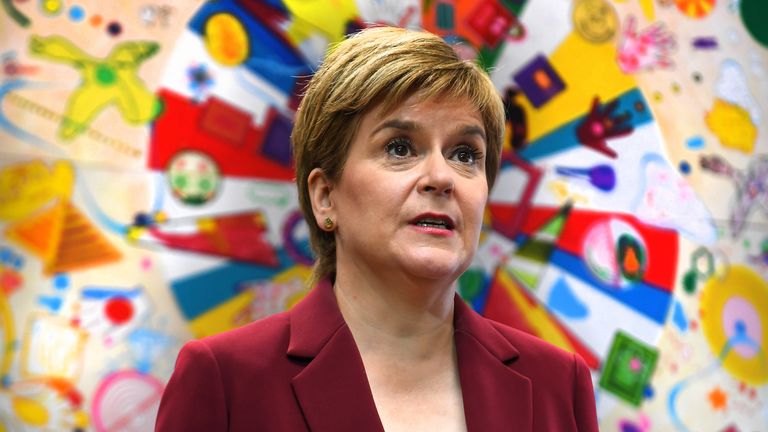Wednesday, 25 August 2021
COVID-19: ANGOLA REPORTS 264 NEW INFECTIONS, 114 RECOVERIES
ANGOLA/CHINA BUSINESS VOLUME GROWS OVER 23%
COVID-19: USA DONATES OVER 500,000 DOSES OF PFIZER VACCINE TO ANGOLA
ANGOLANS COMPETE WITH ITALIAN BUSINESSMEN IN HOTEL MANAGEMENT
US WWII veteran reunites with Italians he saved as children
CIA head meets Taliban leader as fears for Afghanistan grow
The director of the CIA met with the Taliban’s top political leader in Kabul, an official said Tuesday, as more reports emerged of abuses in areas held by the fighters, fueling concerns about Afghanistan’s future and the fate of those racing to leave the country before the looming U.S. withdrawal.
A Taliban spokesman dashed hopes that an American-led evacuation could continue beyond an Aug. 31 deadline to allow more time for Western powers to get their citizens and vulnerable Afghans out of the country. Recent days have seen a flurry of efforts to speed the chaotic operation at Kabul’s airport, where scenes of desperation have highlighted both the disarray of the American pullout and fears that the Taliban will again impose a brutal rule.
Leaders of the Group of Seven nations plan to meet later in the day to discuss the airlift and the broader crisis.
While details of William Burns’ discussion with Mullah Abdul Ghani Baradar on Monday were not released, the meeting represents an extraordinary moment for a CIA that for two decades targeted the Taliban in paramilitary operations. And it gives a sense of the extent of the wrangling happening ahead of the end of America’s two-decade war in the country.
The CIA partnered with Pakistani forces to arrest Baradar in 2010, and he spent eight years in a Pakistani prison before the Trump administration persuaded Pakistan to release him in 2018 ahead of peace talks.
The Washington Post first reported Burns’ meeting with Baradar. A U.S. official confirmed the report on condition of anonymity because they were not authorized to speak publicly. A Taliban spokesman said he was not aware of any such meeting but did not deny that it took place.
In the wake of their stunning takeover of Afghanistan, Taliban leaders have promised to restore security and tried to project an image of moderation, but many Afghans are skeptical — and thousands have raced to the airport to flee the country. U.N. human rights chief Michelle Bachelet added to those concerns Tuesday, warning she had credible reports of “summary executions” and restrictions on women in areas under Taliban control. She urged the Human Rights Council to take “bold and vigorous action” to monitor the rights situation.
Bachelet did not specify what time timeframe she was referring to or the source of her reports. It has been difficult to determine how widespread abuses might be and whether they reflect that Taliban leaders are saying one thing and doing another, or if fighters on the ground are taking matters into their own hands.
When the Taliban last ruled Afghanistan in the late 1990s, the group largely confined women to their homes, banned television and music, chopped off the hands of suspected thieves and held public executions.
Later Tuesday, G-7 leaders will discuss the crisis in Afghanistan, as European leaders press the U.S. to consider delaying its withdrawal to allow more time to evacuate those desperate to leave.
U.S. administration officials have refused to be pinned down about whether an extension is likely or even possible given that the Taliban spokesman have warned that Aug. 31 is a “red line” and that extending the American presence would “provoke a reaction.”
On Tuesday, Taliban spokesman Zabihullah Mujahid said again that his group would accept “no extensions” to the deadline.
He said Taliban forces would take over airport security after Aug. 31, adding that there was no need for even the planned deployment of Turkish troops there.
German Foreign Minister Heiko Maas said the majority of local staff who worked for his country in Afghanistan haven’t yet gotten out and called Tuesday’s meeting “very important” for discussing international access to the Kabul airport beyond the end of August. Britain’s defense minister separately has called the deadline a “mistake.”
Tragic scenes at the airport have transfixed the world. Afghans poured onto the tarmac last week and some clung to a U.S. military transport plane as it took off, later plunging to their deaths. At least seven people died that day, and another seven died Sunday in a panicked stampede. An Afghan solider was killed Monday in a gunfight.
Underscoring the fears of those seeking to flee, Bachelet cited reports Tuesday of “summary executions” of civilians and former security forces who were no longer fighting, the recruitment of child soldiers, and restrictions on the rights of women to move around freely and of girls to go to school. She cited repression of peaceful protests and expressions of dissent.
She called for strong action to investigate reports of rights abuses.
“At this critical moment, the people of Afghanistan look to the Human Rights Council to defend and protect their rights,” she said. “I urge this council to take bold and vigorous action, commensurate with the gravity of this crisis, by establishing a dedicated mechanism to closely monitor the evolving human rights situation in Afghanistan.”
By “mechanism,” Bachelet was referring to the possibility that the council might appoint a commission of inquiry, special rapporteur or fact-finding mission on the situation in Afghanistan.
While advocacy groups like Human Rights Watch echoed such calls, a draft resolution at the council stopped far short of intensified scrutiny — and appeared to push back any deeper look at the rights situation until next year.
……………………………………………………
9 women now serving as governors in US, tying a record
UK records 174 new COVID deaths – the highest daily figure since 12 March
The UK has recorded a further 174 COVID deaths – the highest daily figure since 12 March.
30,838 new coronavirus cases have also been reported in the latest 24-hour period.
This compares with the 31,914 new COVID cases and 40 deaths reported yesterday.
This time last week, 17 August, the UK recorded 26,852 cases and 170 deaths.
It is the highest number of daily deaths since 175 were recorded on March 12.
On Monday, 46,401 people were given their first dose of a vaccine, taking the total number to 47,737,142 – 87.8% of the UK’s population aged over 16.
131,283 people were given their second dose, which means 77.2% of the population is now fully inoculated.
It comes as weekly coronavirus-related deaths in the UK have reached their highest level since March, the Office for National Statistics said.
There were 652 COVID deaths registered in the week ending 13 August, an increase of 6.7% on the previous week.
Around one in 18 deaths registered (5.5%) mentioned COVID-19 on the death certificate.
It is the highest number since 800 fatalities involving COVID were registered in the week ending 26 March.
The ONS said the latest total includes 550 deaths in England, 41 in Scotland, 40 in Northern Ireland and 19 in Wales.
Scotland’s First Minister Nicola Sturgeon has said she cannot rule out re-imposing some COVID restrictions, following a “substantial increase” in cases.
She told a Scottish government coronavirus briefing that new cases had almost doubled in the past week, and said the country had reached a “fragile and pivotal moment in our journey through the pandemic”.
Scotland has also announced plans to establish a judge-led public enquiry into its government’s handling of the health crisis.
People infected with the more transmissible Delta variant have a viral load 300 times higher than those with the original version of COVID-19, researchers in South Korea have found.
This means the virus spreads more easily from person to person, increasing infections and hospitalisations.

“But it doesn’t mean Delta is 300 times more infectious… we think its transmission rate is 1.6 times the Alpha variant, and about two times the original version of the virus,” said South Korean health ministry official Lee Sang-won.
The Delta variant was first identified in India and the Alpha variant in the UK.
Almost 5,000 coronavirus cases in the UK are suspected to be linked to a surf and music festival in Cornwall, with health officials launching an investigation.

4,700 people have tested positive following Boardmasters in Newquay earlier this month – 800 are thought to be living in Cornwall, but cases are spread across the UK.
It comes despite festival-goers aged 11 and above being asked to demonstrate their COVID status via the NHS app before being allowed to enter the sold-out event.
Attendees had to prove they were either double vaccinated, show a negative lateral flow test taken within 24 hours of arriving, or that they had natural immunity following a positive PCR test taken at least ten days earlier.
Cornwall and the Isles of Scilly recorded the second-highest rate of coronavirus cases out of 312 areas in England, up from 383.5 per 100,000 to 717.4 – with 4,129 new cases in the week up to 19 August.
Mayor of Newquay, Louis Gardner – who owns a deli in the town – said: “We’re seeing a spike in Cornwall because we’ve got the highest number of visitors we’ve ever had.”
……………………………………………………
A Royal Encounter at Madame Tussauds London - Part 7
Exploring the Majesty of the Palace and Its Distinguished Guests Greetings, ladies and gentlemen! My name is Sofonie Dala, and I am deligh...

-
Since the July 26 coup, Niger has become the latest hotbed of disinformation in the troubled Sahel region as West African powers grapple wit...
-
Angolan President of Republic João Lourenço marked Saturday (26) the third year of his five-year in office, marked by the strong negative ...
-
Celebrating Purpose, Passion & Powerful Public Engagements! Dear Changemakers, As we reach the midpoint of 2025, we’re thrilled to sha...








